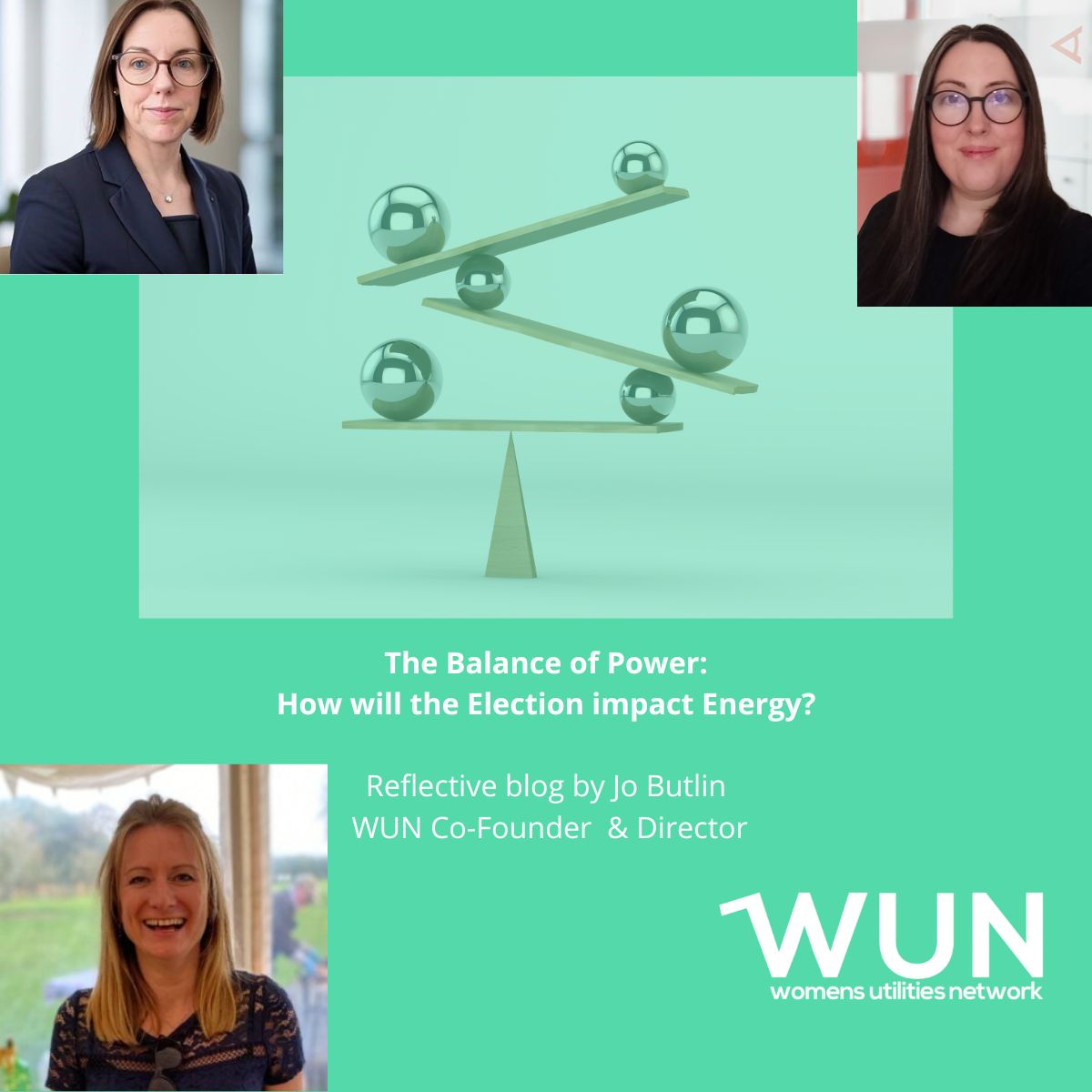The Balance of Power – How Will The Election Impact Energy?

With both Conservatives and Labour rowing back from previous commitments, and time to 2050 being eaten up by seemingly glacial policy change, the potential impact of the upcoming election on the energy transition felt like a worthwhile topic for discussion at the latest WUN event.
The audience were polled at the start of the discussion and, perhaps disappointingly, 52% believed that none of the parties had a realistic vision for delivering Net Zero by 2050. And perhaps less surprising, 54% believed that climate change policies would be of little or no significance in influencing the outcome of the general election.
Our panel however, laid the ground for a fantastic discussion, which was both thought provoking and also deeply informed. The overriding learning, which linked back to the poll results, was that party politics is a relatively minor influencer on the success of the UK’s energy transition. Far more important, for whichever party is in government, is the need for clear direction and stability in energy policy and a balanced approach to delivering change.
Kat kicked us off with a perspective on the influence of bureaucracy on change- citing examples where change has taken years to enact from concept to delivery. Realistically, without change to the way that policy evolves and is enacted, we will be at 2050 before some of the key building blocks are in place. However, Kat also highlighted some of the unintended consequences resulting from rapid policy change (eg during COVID) which whilst admirable at the time, were not without significant economic impact. The key take away was that bureaucracy has an important role in delivering change, but needs to be more effectively balanced with the need for pace.
Rachel focused us in on the importance of the right policy framework to encourage international and national investment, which is critical for building enabling infrastructure. As the UK slides down the EY RECAI attractiveness index and the lack of new onshore wind projects speaks for itself, the impact of continually changing policy and regulation on private sector investment and hurdle rates has never been more significant. Again, the balance between ‘perfect’ radical transformation and incremental improvement is critical in influencing human confidence in making long term investment decisions. However, in a more positive frame, it is recognised that the UK has been in a leadership position in relation to energy transition for a long time and the pace of change to renewables is largely a result of that. A similar transition for heat however, is likely to be a lot harder- when consumers are directly impacted at a household level, change is much more tricky to deliver.
Kate, joined the discussion with a macro view of politics itself. We learnt that she is not only a self confessed energy geek, but a political one too- Few others in the room had watched every general election back to 1955! The thought provoking threads that Kate drew, were in relation to what is important to voters- and therefore priority for parties- now and through history. The need for our children to be safe from conflict and economically secure in the short term trumps long term climate change- even if the importance of it is recognised and a concern to voters. With more national wealth being necessarily diverted to both these areas, energy policy and climate change are increasingly being pushed to the right as tomorrow’s problem.
As we opened to the floor, the room debated whether the establishment of a National Energy Office would be a good thing, whether NESO was being set up as a scape goat for failure elsewhere, and how often change was delivered without sufficient consideration of likely human response. Opposing views were expertly argued.
The conversation could have gone on all day, and the quality of discussion was excellent with constructive and good humoured debate. Whilst highlighting the challenges of the energy transition, it felt like the women in the room, given a little more time, could together make significant progress in constructively and effectively addressing them. The buzz whilst networking afterwards, suggested that conversations would continue well beyond the event. It all bodes well for progress.
A recording of the full panel discussion will be available shortly.
Jo Butlin, WUN Co-Founder & Director